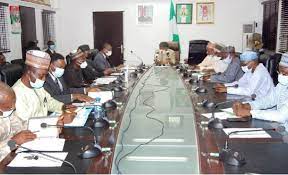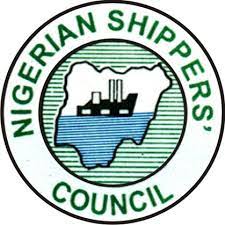COVER
Why Tuesday’s Meeting with FG Ended in Deadlock-ASUU

Meanwhile the Academic Staff Union of Universities (ASUU) has advanced reasons why its meeting with the Prof. Nimi Briggs-led committee of the Federal Government on August 16 ended in deadlock.
The union explained that the meeting failed to yield fruit because of a certain award of Consolidated University Academic Salary Structure (CONUASS) said to have been prepared by the National Salaries, Incomes and Wages Commission to it.
The union, in a press statement signed by its President, Prof Emmanuel Osodeke, on Thursday expressed anger that the “award”, presented by the Nimi Briggs-led team came in a manner of “take-it-or-leave-it’’ , in ordinarily sheet of paper.
The ASUU president said the ‘award salary’, was against the principle of collective bargaining based on the Wages Boards and Industrial Council’s Decree No. 1 of 1973, the Trade Dispute Act (1976).
He said it was against the ILO Conventions 49 (1948), 91(1950), 154 (1988) and recommendation 153 (1981), Udoji Commission Report of 1974, and Cookey Commission Report of 1981.
According to him, the report also provided a platform for resolving such important issues as special Salaries and Conditions of Service of University Staff, University Funding, roles of Pro Chancellors, Vice-Chancellors, and National Universities Commission (NUC).
He said that a key outcome was a special salary scale for university staff known as University Salary Structure (USS).
He, therefore, said the Federal Government, through the Ministry of Education, should return to the New Draft Agreement of the 2009 FGN/ASUU Renegotiation Committee, whose work spanned a total of five and half years, as a demonstration of good faith.
According to the statement, tagged: “Why ASUU Rejects Governments Award of Salary”, the union claimed that government imposed the ongoing strike action on them, and has encouraged it to linger because of its provocative indifference.
“The Munzali Jibril-led renegotiation committee, submitted the first Draft Agreement in May 2021 but government’s official response did not come until about one year later.
“Again, the “Award” presented by the Nimi Briggs-led Team, came across in a manner of take-it-or-leave-it on a sheet of paper. No serious country in the world treats their scholars this way.
“Over the years, particularly since 1992, the union had always argued for, and negotiated a separate salary structure for academics for obvious reasons.
“ASUU does not accept any awarded salary as was the case in the administration of Gen. Abdulsalam Abubakar. The separate salary structures in all FGN/ASUU Agreements were usually the outcome of Collective Bargaining processes,” he said.
He said the major reason given by the Federal Government for its miserly offer, which was paucity of revenue, was not tenable.
“This is because of several reasons, chief of which is poor management of the economy. This has given rise to leakages in the revenue of governments at all levels.
“There is wasteful spending, misappropriation of funds and outright stealing of our collective patrimony.
“ASUU believes that if the leakages in the management of the country’s resources are stopped, there will be more than enough to meet the nation’s revenue and expenditure targets, without borrowing and plunging the country into debt crisis as is the case now.
“At the commencement of the renegotiation of the 2009 FGN/ASUU Agreement on March 16, 2017, both the federal government and ASUU teams agreed to be guided by” some terms of reference.
“ASUU, however, expressed regrets that the former reneged on its side of obligations and agreed in the agreement,” he said. (NAN)
COVER
Veritas Kapital Records N13.6bn Premium in 2025
Veritas Kapital Assurance Plc has reported an eight percent rise in Gross Written Premium to N13.6 billion in the first half of the year.Managing Director of Veritas Kapital Assurance, Dr. Adaobi Nwakuche disclosed this in a statement on Wednesday in Lagos.Nwakuche said the performance reflected strong market presence and effective distribution channels.
She noted that Net Insurance and Investment Income surged by 244 per cent to N5. 2 billion, from N1.52 billion recorded in the full year 2024.According to her, Profit After Tax reached N3.2 billion, already surpassing the company’s total earnings for the full year 2024.“These results affirm the strength of our values-driven model, built on our people’s dedication, a clear strategy, and unwavering focus on customer value,” she said.Nwakuche said Total Assets rose by 11 per cent to N37 billion from N33.1 billion in 2024, showing improved financial health and operational efficiency.She added that shareholders’ funds increased to N15.1 billion from N11.92 billion in 2024, underscoring investor confidence and sound governance.“This performance is the result of disciplined underwriting, investment optimisation, expanded digital capabilities, and strong customer-focused service delivery.“The H1 2025 results go beyond growth. They show Veritas Kapital’s evolving role as a partner in progress, delivering solutions relevant to individuals, businesses, and communities. “Each figure tells a story of protection delivered, promises honoured, and futures secured. We are building trust, not merely growing profits,” Nwakuche said.She added that as Nigeria adapts to new economic realities, Veritas Kapital is charting a course defined by agility, innovation, and intentionality.The company, she said, is investing in digital access, claims responsiveness, and talent development, while reinforcing its core values of integrity, transparency, and service.COVER
FG Disburses N5.12bn Pension Arrears to 90,689 DBS Pensioners

By Tony Obiechina, Abuja
The Federal Government has released funds for the disbursement of N5.12 billion in pension arrears to 90,689 Defined Benefit Scheme (DBS) pensioners under the Pension Transitional Arrangement Directorate.This was contained in a statement by the Head of Corporate Communications of PTAD, Olugbenga Ajayi.
He said that the directorate had finalised the disbursement of the money. The Nigeria Customs Service, the Nigeria Immigration Service, and Prisons Pension Department (CIPPD) pensioners are 8,626, received N276,032, for one-month arrears; the Police, Pension Department (PPD) pensioners are 9,681, received N619,584, for two months as arrears. The Civil Service Pension Department (CSPD) pensioners are 12,773, received N408,736, for one-month arrears, and the Parastatals Pension Department (PAPD) pensioners are 59,609, received N3,814,He said that the payment reaffirms the administration’s commitment to ensuring that pensioners receive their due entitlements in line with the Renewed Hope Agenda of President Bola TinubuAccording to the statement, the approvals align with the President’s Renewed Hope Agenda.“This move shows President Tinubu’s strong commitment to senior citizens’ welfare and marks a new era in DBS pension management,” said PTAD, Executive Secretary, Tolulope Odunaiya.Among the key measures is the immediate implementation of an extra budgetary allocation to enforce new pension rates for DBS pensioners.The President also endorsed the adoption of a proposed pension harmonisation policy, which will be incorporated into the 2026 pension budget. Additionally, health insurance coverage for all DBS pensioners has been approved, ensuring access to essential healthcare services.The proposed reforms include a new pension rate of N32,000 and incremental increases of 10.66% and 12.95% for pensioners from defunct and privatised agencies. Other components of the reform package include harmonisation of pension rates across all DBS pensioners and their enrolment into the National Health Insurance Scheme (NHIS).In June, PTAD announced the successful disbursement of N8.6 billion in pension arrears to 148,625 eligible DBS pensioners across various sectors. The payments reflect the implementation of the N32,000 pension increment approved by President Tinubu in 2024.PTAD had previously settled arrears related to the first pension increment of 20% to 28%, which came into effect in January 2024.COVER
NAF Offensive Decimates 592 Terrorists, Destroys 372 Assets in Eight Months

By David Torough, Abuja
The Nigerian Air Force (NAF) has killed no fewer than 592 terrorists and destroyed 372 enemy assets in Borno within the last eight months, surpassing the total operational gains recorded in 2024.A statement by NAF’s spokesman, Air Commodore Ehimen Ejodame yesterday said the Chief of the Air Staff (CAS), Air Marshal Hasan Abubakar, said this during a courtesy visit to Gov.
Babagana Zulum of Borno. Abubakar said the offensive had destroyed 206 technical vehicles and 166 logistics hubs in deep hostile territory, with coordinated day-and-night strikes from Gonori to Rann, Dikwa to Damboa, Azir to Mallam Fatori.He said the offensive had been boosted by the deployment of A-29 Super Tucano aircraft capable of precision and night missions, Mi-171 helicopters for medical evacuation and logistics, and enhanced intelligence, surveillance and reconnaissance platforms for round-the-clock target tracking.He added that a new Mi-35 gunship was expected to further intensify close-air support for ground troops in the theatre.“Backed by an upgraded fleet and precision night-strike capabilities, NAF aircraft executed 798 combat sorties, clocking over 1,500 operational flight hours in the Air Component of Operation Hadin Kai.“This year, our air war is faster, sharper, and more surgical.“We are taking out high-value targets, crippling their logistics, and hunting down every cell that threatens the peace of the North-East,” he said.The CAS also praised the “Borno Model” of combining community-driven non-kinetic measures with decisive military action, saying it had proven effective in the counter-insurgency campaign.He also inspected facilities at the NAF Base, met with aircrew and ground personnel, and received operational briefings.He reaffirmed the NAF’s commitment to precision air power, intelligence-led operations, and inter-agency collaboration to protect Nigerians.In his response, Gov. Zulum praised the NAF for its sustained air support in degrading terrorist capabilities and protecting communities.According to him, the NAF has been a steadfast partner in their fight against insurgency.“Your operations have saved countless lives and allowed our communities to begin rebuilding.“The people of Borno recognise your sacrifices and stand firmly behind you,” he said.

























